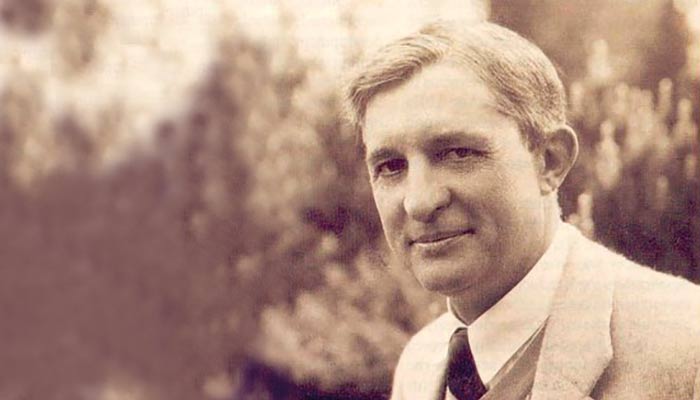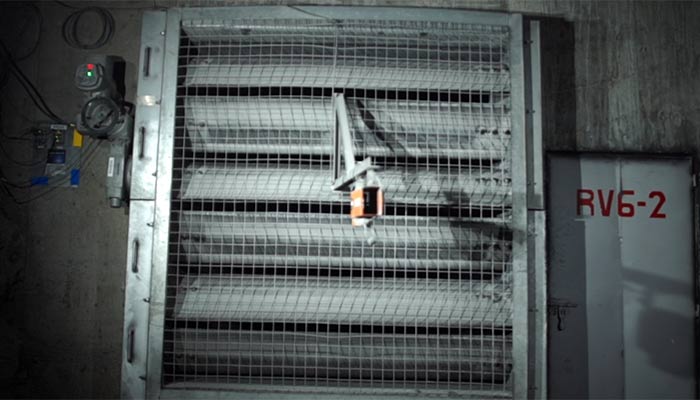
Articles
Learn more about how our products and services help customers just like you on a daily basis.
The sun is beating in through the window, a bead of sweat appears on your forehead. You have so much to do today you need to remain focused. But the heat? It’s too much. Solution? Blast the air con.
You can thank Willis Carrier for that, well not just him, him and 5 other individuals that between themselves discovered and developed air conditioning which now benefits so many people and industries across the world.
Most commonly used to keep an interior environment, like an office or store, at an optimal and comfortable temperature. But can be used across a range of industries and sectors like hospital operating theatres, nuclear power facilities, or underground in mines, even museums of fine art to IT data centres.
But how did we get here? This blog is going to talk to you about the ‘Father of Air Conditioning’ Willis Carrier, and 5 other key figures that you can thank for air conditioning. Let's start at the beginning...
In 1758, Benjamin Franklin, yes the founding father of the United States of America, along with John Hadley, a chemistry professor at Cambridge University, conducted the first documented test for the theory of air conditioning - to test the principle of evaporation as a means to rapidly cool an object.
By placing various liquids on the bulb end of a mercury thermometer they discovered that the temperature would drop as the liquid evaporated - therefore the evaporation of liquids causes heat loss.
They were able to lower the temperature of a mercury thermometer from 64 degrees Fahrenheit down to 7 degrees Fahrenheit, and noted that blowing on the liquid would make it evaporate quicker. Another thing that they noted was that more volatile liquids such as alcohol and ether had a greater cooling effect, with the capabilities to drive down the temperature of an object past the freezing point of water.
Franklin concluded: "From this experiment one may see the possibility of freezing a man to death on a warm summer's day." - Sounds like a more extreme version of modern air conditioning to us!
Next up in 1820, the English scientist and inventor Michael Faraday discovered that if you compressed ammonia, turning it to liquid, that when that liquid later evaporates it would chill the air inside the room.
Faraday continued on to become one of the most influential scientists in history, discovering the chemical benzene and inventing an early form of the Bunsen burner to name but a few of his successes. Even Albert Einstein kept a picture of Faraday on his study wall.
In 1842, the Florida physician John Gorrie built his ice-making machine - a machine that used compressor technology to compress air and water to make ice. It then had air blown over the ice which in turn cooled the air in the room, keeping his patients nice and cool.
In 1851 he gets his ice-making machine patented and envisions a world full of his machines keeping everyone cool all over the world.
Sadly, Gorrie lacked the financial backing and died in 1855 - along with his dream of commonplace air conditioning.
Until, “The father of air conditioning” came along.

Willis H Carrier, who from 1902 to 1915 was Chief Engineer of the Buffalo Forge Company, subsequently acquired by Howden in 1993, invented the first electrical air conditioning unit in 1902.
Carrier was left with the task to improve the manufacturing process in a printing plant that suffered from excessive humidity, which wreaked havoc on the inks used to print. To remedy this Carrier submitted drawings of a system that would control temperature, control humidity, control the air circulation and ventilation, and cleanse the air - not bad for a 25 year old fresh out of college.
Using his knowledge of heating objects with steam, he simply reversed the process. Instead of sending air through hot coils, he sent it through coils filled with cold water instead. As the air cooled, moisture in the air increased, therefore the humidity, along with the temperature could be controlled.
And thus, the modern air conditioner was born.
Using aeration here means that grit is more efficiently removed, reducing any problems that grit can cause in the processes further downstream. Selected blowers will deliver maximum efficiency - check out our selection of blowers here.
Deserving an honorary mention. Stuart Cramer.
In 1906 while exploring ways to add moisture to the air in his textile mill, Stuart Cramer invented a ventilating device that combined moisture with ventilation that “conditioned” the air in his factories. By adding water vapour to the air he was able to control the humidity making the textiles easier to work with.
He coined this process “air conditioning” and Wills Carrier liked it so much he adopted the term and even incorporated it into the name of his company.
So there we have it, the discovery and development of the modern air conditioner and who you have to thank for it.
